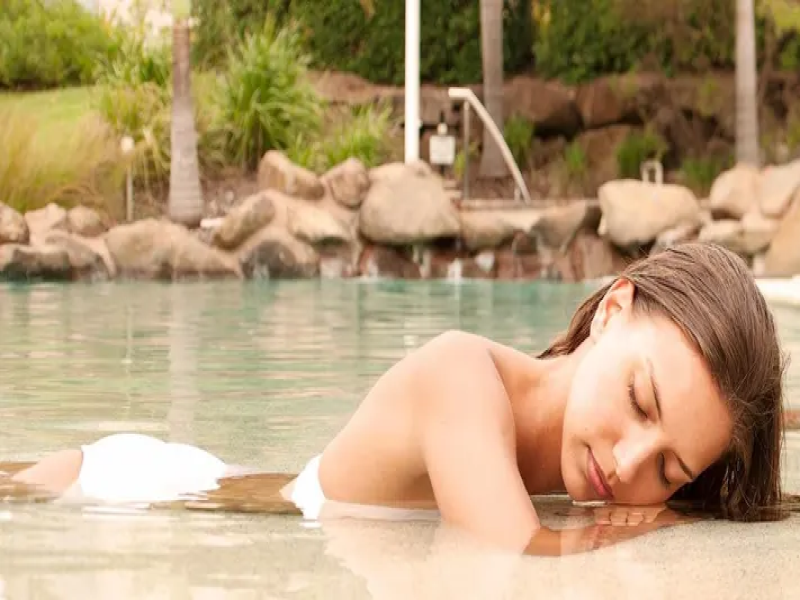Introduction
In a world where everything revolves around the consumer and consumption we are normally surrounded by advertisement, sale, and temptation with the new and trendy technologies and products. Pursuit of wealth and all sorts of materials things becomes a never-ending process in the life of man, and all such attempts to gain these things turn out to be futile and unfruitful in the end. That’s actually the point; true happiness is not built-in things, but in experiences. – The Antidote to Consumerism
In their paper entitled: The Allure of Material Possessions, the authors have effectively presented the main concepts in a succinct and clear manner as will be further explained as follows.
As seen in the lectures and texts, acquisition is part and parcel of human behavior. They have been trained to think that possessing more, will make one happy, successful and well fulfilled. But this is not true. Often, we hear that material things can give people momentary enjoyment, but they don’t last for more than that. In actually, it has been found that the elation resulting from the purchase of material commodities consistently declines as hours, days, weeks or even months go by.

The Power of Experiences
On the other hand, experience was described as far-reaching and influential to the wellbeing of the individuals. Service experiences on the other hand whenever time and money are put down, it gets rewarded with memories. Such memories generate positive feeling, help us to enhance our interpersonal relationships and promote general well-being. Studies have found that in those individuals who tend to value experiences they get a higher level of happiness, life satisfaction and better social relationships.
Shifting Your Mindset – The Antidote to Consumerism
But, in order to become the practicing experiential consumer and live the experiential life ideology, the overall attitude adjustment is needed. This entails therefore having to shift our attitude and disposition about the sociology of things. Here are some practical tips to help you cultivate a more mindful and experiential approach:
- Practice intentional purchasing: Before you even start to buy something, just think to yourself, do I really need this? Think about why you want it and if it is a need or a want, if it’s something that is meaningful to you and if it can provide you with meaningful value in the future.
- Embrace minimalism and decluttering: The best decision you could make is to declutter; eliminate things that you don’t need any longer. Having a neat workplace can lead to less stress and lots of idea clarity.
- Cultivate gratitude: Write down the strengths, likes, accomplishments, health, families, friends, experiences of your life. Cultivating a thankful attitude will cause you to look at things differently and acknowledge the things that you already possess.
If you start incorporating these changes into your lifestyle, then, you can start working towards having a life less obsessed with material things.
The Practical Guide to Experiential Living
Now that we’ve explored the benefits of experiences, let’s delve into practical tips for incorporating more experiences into your life:
Investing in Experiences
- Prioritize experiences over material goods: Budget on experience rather than things.
- Explore local and affordable experiences: Find more new and exciting things in your own backyard. Although traveling takes a lot of cash, that does not mean going out to find fun and entertainment is expensive; there are always enjoyable things such as local parks, local museums, and farmers’ markets.
- Create a budget for experiences: Save a certain amount of money to be spent on experience money each month. This will help in guiding you in your timetable and also in your organization of activities.
The Art of Presence
To actually enjoy moments in life, you have to be able to be conscious of the moment in the present. Here are some techniques to help you cultivate mindfulness:
- Practice mindfulness and meditation: Any of these practices can assist you to narrow your concentration and also minimize stress levels.
- Focus on the present moment: Stay away from your phone – Facebook, Instagram, Tiktok, etc. These include; do the activity you are involved in to the optimum.
- Disconnect from technology to reconnect with yourself and others: Stay away from technological devices for a specific period of time to be with family and friends.
If you complement your daily activities with these practices, you can improve your experience of events, and create more positive memorable events.

The Impact of Experiential Living
Experiential living holds many advantages that go far beyond the gaining of personal satisfaction. This is about dedicating one’s experiences, and hence, capability to make one healthier, happier, and the word in general a better place.
Enhanced Well-being
- Positive psychological effects of experiences: As found by previous studies, experience can lead to happiness, stress decrease and even life satisfaction.
- Link between experiences and reduced stress and anxiety: This case, participation in fun activities could be of best use when it comes to reducing pressure and attaining relaxation.
Stronger Relationships
- Shared experiences deepen bonds: Closeness with families and friends, event, time and activities passed together will enhance those relations.
- Importance of quality time with loved ones: Spend more time with the loved ones as well as develop time for developing quality moments together.
A More Sustainable Future
- Environmental impact of consumerism: Overconsumption is known to cause environmental degradations and impact on climate.
- Encourage sustainable consumption practices: If people focus on the experience rather than on the acquisition of material goods, the world is becoming a better place for everyone to live on.
Thus, we can build a better, happier, and enduring experiential, life, for the planet and the future generations.
Conclusion
Therefore, the failed promise of consumerism is an appeal to revert from the community’s tendency of chasing possessions back to the value of experiences. In embracing such moments that are conducive to connection, development and meaning making, we liberate ourselves for the ‘junk food’ economy. They form certain types of an unforgettable experience, establish bonds and enrich people’s lives in a way that commodities cannot do to human beings. As consumers get wiser and societies get matured, emotional experience starts triumphing over material things. In pursuing quality experiences over material things we learn what makes happiness – and it is all about what we are doing as well as with whom we are doing it and how we are doing it. This change of mindset helps one live even as it helps cherish each little precious thing in life, and helps one attain a state of simple happiness.
In addition, many of the principles of this experience economy are also sustainable and mindful in nature In addition, an experiential economy reduces the emphasis on immediate acquisition of material goods. In each of these cases we decided to have more meaningful experiences instead of accumulating more material goods, while diminishing our impact on the environment. Such shift not only enables one has a more profound feeling of aims in life but it also results in having a more harmonious, spiritual look at life.
Finally, seeking happiness in sundry things encourage us to look forward to the future, embrace and work on relationships and develop thankfulness for things that humans sometimes overlook. They as much points to the fact that human beings may end up with loads of material possessions, yet be utterly empty on the inside if they don’t learn to live properly and appreciate that the world is much more than the things they possess.

References
- Kasser, T. (2002). The High Price of Materialism. MIT Press.
This book explores the psychological effects of materialism and suggests that a focus on intrinsic goals, like personal growth and meaningful experiences, leads to greater happiness and fulfillment. - Gilbert, D. (2006). Stumbling on Happiness. Knopf.
Gilbert discusses how people often misjudge what will bring them happiness, explaining that experiences—rather than possessions—tend to provide longer-lasting satisfaction. - Van Boven, L., & Gilovich, T. (2003). To Do or to Have? That Is the Question. Journal of Personality and Social Psychology, 85(6), 1193-1202.
This study demonstrates that people derive greater satisfaction from experiences, such as travel or social activities, rather than from acquiring material goods. - Pillemer, D. B. (2013). 100 Simple Secrets of Happy People: What Scientists Have Learned and How You Can Use It. Plume.
Pillemer’s book presents research on happiness, emphasizing how experiences—especially those that involve connection and personal growth—are key to living a fulfilling life. - Chatterjee, S. (2016). The Psychology of Experience: Why Experiences Beat Possessions. Psychology Today.
This article highlights the psychological benefits of experiences over material possessions, drawing on research that shows experiences contribute to personal well-being and lasting memories.




